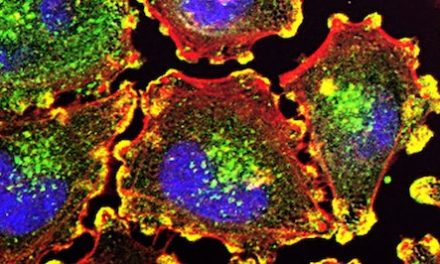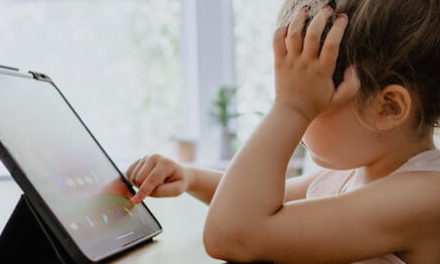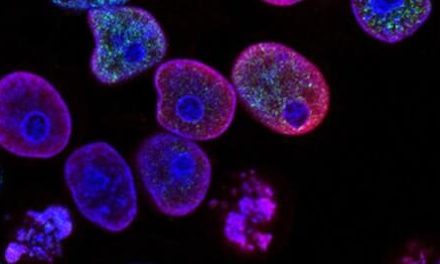Supervised by: Amanda Liu, BEng, MSc. Amanda spent her undergraduate years studying Biochemical Engineering at UCL (University College London), where she was awarded First Class Honours. She then completed her Master’s degree in Clinical and Therapeutic Neuroscience at the University of Oxford. She is currently studying Medicine (Graduate Entry) at the University of Cambridge.
Introduction
Pandemics and viruses have existed for a long time, and with each iteration they continue to evolve in ways that negatively impact humanity. Through the centuries a lot of pandemics have existed, such as Cholera, Bubonic Plague, Influenza, Ebola, Spanish Flu, etc., all of which have spread rapidly across huge parts of the world and have killed millions of people. (1) These pandemics caused a lot of negative economic, social, and security impacts on the entire community.
In December 2019, a new virus was discovered called COVID-19, which caused the same damages. (2,3) This ongoing pandemic has become the world’s leading health problem. The world’s fear and concern grew each day. For safety reasons, each country closed its borders, imposed lockdowns or travel restrictions and started to research vaccines and treatments.
COVID-19 has been a multifaceted pandemic and it has affected people in all walks of life. (4) The predominant illness associated with COVID-19 is an upper respiratory infection which, in some cases, causes pneumonia. (5) There has been widespread fear and anxiety associated with the COVID-19 pandemic. (6)
This literature review will concentrate on the effect of COVID-19 on the mental health of elite athletes.
Methods
The Pubmed database was searched with search terms that included: (“COVID-19” AND “Sport” AND “Psychology”), (“COVID-19” AND “Athlete” AND “Psychology”), (“COVID-19” AND “Athlete” AND “Psychiatric”), (“COVID-19” AND “Athlete” AND “Neuropsychiatric”), (“COVID-19” AND “Sport”), and (“COVID-19” AND “Neuropsychiatric”). Related MeSH terms were searched as well.
All the results were screened for relevant articles by reviewing titles and abstracts. In total, 42 relevant full text articles were found. Only articles with full text and in the English language were included. Full manuscripts of these articles were reviewed. The articles that included observational study or surveys looking at the psychological, psychiatric or neuropsychiatric impact of COVID-19 on professional athletes were included. In total, 25 articles were included.
Results
The findings of the 25 articles (7-31)included in this review are summarized in Table 1 and Table 2. The studies involved athletes from multiple different countries. All the studies involved surveying the athletes. Some of the studies involved comparison with non-athletes. The studies used various different questionnaires to study psychological impact of the pandemic and its impact on their training.
Neuropsychological symptoms
The studies showed increased levels of anxiety, stress, and depression in athletes. Various studies reported some kind of psychological distress in as many as 44-46% of participants.(7-31) There was increased anxiety related to lockdowns caused by COVID-19. (9) Fear of COVID was also related to COVID anxiety and somatic cognitive anxiety.(14)
One of the studies also reported increased levels of anxiety among various sports. Individual sports like tennis were reported to having high COVID anxiety.(16)
There was a negative impact of the COVID-19 pandemic itself, and studies also report the negative impact of neuropsychological symptoms like anxiety and depression. (16)
A further study also looked at different factors that correlated with psychological symptoms. A decreased sense of meaningfulness and coherence correlated with mood problems. (30) Prediction of anger correlated with use of substances. (30) Behavioral disengagement and self-blaming was thought to lower the mood of athletes. (30)
One study also found 16% athletes had increased problems with alcohol and 7% had more gambling problems during the pandemic. (23)
Athletic Identity
Athletic Identity was also considered one of the important factor affecting the mental state of athletes. Lower athletic identity was associated with increased distress. (8) Increased social identity was correlated with positive outcomes. (22) Team sports did seem to have higher athletic identity. (8)
Gender difference
Eight studies reported a greater increase in anxiety and other psychological symptoms in women compared to men. (10,12-15,18,21-23) However, 2 studies reported no gender difference (10,22) and only one study reported worse symptoms in males. (27)
Studies found more anxiety, depression and fatigue in women in some of the studies. (10,15) Female athletes were more prone to ruminate, and to catastrophize in individual sports. (13) However, one of the studies reported more men with grouchy and gloomy feelings. (27)
Impact of Age
Two of the studies reported decreased distress scores with increased age. (7-31) Anxiety scores seemed to decrease with age as well. (7,10) However, one of the studies did not find any relationship between COVID anxiety and negative impact with age. (16)
Team vs Individual Sports
Individual sports seem to have higher distress scores than team sports. (17,24) Team sports also seemed to have increased athletic identity with lower distress scale scores. (8) Individual contact sports athletes seemed more discouraged. (17) However, one of the studies did not find a difference between individual and team sports in COVID related anxiety and negative impact. (16)
Athletes vs non-athletes
Some of the studies compared the psychological distress amongst professional athletes with non-professional athletes or a general population. Some studies found that the distress scores were lower amongst professional athletes. (15,20,28) Anxiety, depression and stress were found to be lower in Elite athletes. 20 However, several studies found higher levels of anxiety and psychological distress among athletes. (13,22,31)
Sleep
There were multiple studies that reported increased insomnia among athletes related to the pandemic. (15,18,19) It was reported loss of sleep was higher during home confinement caused by COVID-19. (19) One of the studies did find an increased time in bed and that total sleep time increased during lockdown. (25) However, it also found a 25% increase in sleep latency and increase in daytime sleepiness. (25) In one of the comparison studies, professional athletes slept more hours and had a better quality of sleep than non-athletes. (15)
Effect of Training
Multiple studies have reported on the effect of COVID-related psychological symptoms and lockdowns on athletic training. Detailed review of training issues is beyond the scope of this paper. However, there were some important observations made. There were reports of decreased training days and intensity of training. (15,26) There were also concerns about access to support, including coaching staff and training facilities. One of the studies reported a higher intensity and frequency of exercise before pandemic, however the intensity of team sports was found to be lower during pandemic. (17)
Discussion
Since December 2019, the COVID-19 pandemic has affected the human race around the globe. It has affected various aspects of life. As the Olympic games were planned for 2020, there has been an interest in studying the effect of COVID-19 pandemic on athletes.
This review found multiple studies that have looked into the aspect of psychological distress felt by the athletes. As expected, various psychological symptoms had been found to affect the athletes. However, there had been indication that the professional athletes were able to cope with the upheaval better compared with non-athletes, which could be related to their training in professional sports. Similarly, the athletes in higher age groups also seemed to display less severe distress symptoms.
These studies do have some limitations. The various studies have used different questionnaire instruments for the survey of the athletes. While some studies did have comparison or control groups, many studies only included athletes. Although our review included studies only focusing on athletes, the definition of athletes or professional athletes could be different in the studies and countries in which they were conducted. As the study was conducted in various countries, the local factors including COVID-19 severity, local support for the athletes and other local factors could have contributed to the psychological symptoms and makes it difficult to compare across the studies.
The 2020 Olympics were finally held in July 2021 and have been completed while this review is being written. In the future, it will be interesting to consider follow-up studies of these athletes and evaluate their performance based on the psychological distress they had experienced during COVID-19 and its role in affecting their training.

Table 1. Summary Findings Including the Country of the Study, Types of Sports Athletes Selected and Type of Survey

Table 2 Summary Findings Including Survey Questionnaire and Main Results
References
- Piret J and Boivin G (2021) Pandemics Throughout History. Front. Microbiol. 11:631736. https://doi.org/10.3389/fmicb.2020.631736
- Wu F, Zhao S, Yu B, et al. A new coronavirus associated with human respiratory disease in China. Nature. 2020;579(7798):265-269. https://doi.org/10.1038/s41586-020-2008-3
- Zhou P, Yang X-L, Wang X-G, et al. A pneumonia outbreak associated with a new coronavirus of probable bat origin. Nature. 2020;579(7798):270-273. https://doi.org/10.1038/s41586-020-2012-7
- Contini, C., Caselli, E., Martini, F., Maritati, M., Torreggiani, E., Seraceni, S., Vesce, F., Perri, P., Rizzo, L., & Tognon, M. (2020). COVID-19 Is a Multifaceted Challenging Pandemic Which Needs Urgent Public Health Interventions. Microorganisms, 8(8), 1228. https://doi.org/10.3390/microorganisms8081228
- Weiss SR, Navas-Martin S. Coronavirus pathogenesis and the emerging pathogen severe acute respiratory syndrome coronavirus. Microbiol Mol Biol Rev. 2005 Dec;69(4):635-64. https://doi.org/10.1128/MMBR.69.4.635-664.2005
- French, M. T., Mortensen, K., & Timming, A. R. (2020). Psychological Distress and Coronavirus Fears During the Initial Phase of the COVID-19 Pandemic in the United States. The journal of mental health policy and economics, 23(3), 93–100.
- González-Hernández, J., López-Mora, C., Yüce, A., Nogueira-López, A., & Tovar-Gálvez, M. I. (2021). “Oh, my god! My season is over!” COVID-19 and regulation of the psychological response in spanish high-performance athletes. Frontiers in Psychology, 12. https://doi.org/10.3389/fpsyg.2021.622529
- Uroh, C. C., & Adewunmi, C. M. (2021). Psychological impact of the COVID-19 pandemic on athletes. Frontiers in Sports and Active Living, 3. https://doi.org/10.3389/fspor.2021.603415
- Demarie, S., Galvani, C., & Billat, V. L. (2020). Horse-Riding Competitions Pre and Post COVID-19: Effect of Anxiety, sRPE and HR on Performance in Eventing. International Journal of Environmental Research and Public Health, 17(22), 8648. https://doi.org/10.3390/ijerph17228648
- Ruffault, A., Bernier, M., Fournier, J., & Hauw, N. (2020). Anxiety and motivation to return to sport during the french COVID-19 lockdown. Frontiers in Psychology, 11. https://doi.org/10.3389/fpsyg.2020.610882
- Rubio, V. J., Sánchez-Iglesias, I., Bueno, M., & Martin, G. (2021). Athletes’ psychological adaptation to confinement due to COVID-19: A longitudinal study. Frontiers in Psychology, 11. https://doi.org/10.3389/fpsyg.2020.613495
- Garver, M. J., Gordon, A. M., Philipp, N. M., Huml, M. R., & Wakeman, A. J. (2021). Change-Event steals “athlete” from “college athlete”: Perceived impact and depression, anxiety, and stress. Journal of Multidisciplinary Healthcare, Volume 14, 1873–1882. https://doi.org/10.2147/jmdh.s320243
- Costa, S., Santi, G., di Fronso, S., Montesano, C., Di Gruttola, F., Ciofi, E. G., Morgilli, L., & Bertollo, M. (2020). Athletes and adversities: Athletic identity and emotional regulation in time of COVID-19. Sport Sciences for Health, 16(4), 609–618. https://doi.org/10.1007/s11332-020-00677-9
- Mehrsafar, A. H., Moghadam Zadeh, A., Jaenes Sánchez, J. C., & Gazerani, P. (2021). Competitive anxiety or Coronavirus anxiety? The psychophysiological responses of professional football players after returning to competition during the COVID-19 pandemic. Psychoneuroendocrinology, 129, 105269. https://doi.org/10.1016/j.psyneuen.2021.105269
- Mon-López, D., de la Rubia Riaza, A., Hontoria Galán, M., & Refoyo Roman, I. (2020). The impact of covid-19 and the effect of psychological factors on training conditions of handball players. International Journal of Environmental Research and Public Health, 17(18), 6471. https://doi.org/10.3390/ijerph17186471
- Mon-López, D., de la Rubia Riaza, A., Hontoria Galán, M., & Refoyo Roman, I. (2020). The impact of covid-19 and the effect of psychological factors on training conditions of handball players. International Journal of Environmental Research and Public Health, 17(18), 6471. https://doi.org/10.3390/ijerph17186471
- Aghababa, A., Badicu, G., Fathirezaie, Z., Rohani, H., Nabilpour, M., Zamani Sani, S. H., & Khodadadeh, E. (2021). Different effects of the COVID-19 pandemic on exercise indexes and mood states based on sport types, exercise dependency and inspanidual characteristics. Children, 8(6), 438. https://doi.org/10.3390/children8060438
- Parm, Ü., Aluoja, A., Tomingas, T., & Tamm, A.-L. (2021). Impact of the COVID-19 pandemic on Estonian elite athletes: Survey on mental health characteristics, training conditions, competition possibilities, and perception of supportiveness. International Journal of Environmental Research and Public Health, 18(8), 4317. https://doi.org/10.3390/ijerph18084317
- Mehrsafar, A. H., Moghadam Zadeh, A., Gazerani, P., Jaenes Sanchez, J. C., Nejat, M., Rajabian Tabesh, M., & Abolhasani, M. (2021). Mental health status, life satisfaction, and mood state of elite athletes during the COVID-19 pandemic: A follow-up study in the phases of home confinement, reopening, and semi-lockdown condition. Frontiers in Psychology, 12. https://doi.org/10.3389/fpsyg.2021.630414
- Sokić, J., Popov, S., Dinić, B. M., & Rastović, J. (2021). Effects of physical activity and training routine on mental health during the COVID-19 pandemic and curfew. Frontiers in Psychology, 12. https://doi.org/10.3389/fpsyg.2021.624035
- Jaenes Sánchez, J. C., Alarcón Rubio, D., Trujillo, M., Peñaloza Gómez, R., Mehrsafar, A. H., Chirico, A., Giancamilli, F., & Lucidi, F. (2021). Emotional reactions and adaptation to COVID-19 lockdown (or confinement) by spanish competitive athletes: Some lesson for the future. Frontiers in Psychology, 12. https://doi.org/10.3389/fpsyg.2021.621606
- Knowles, C., Shannon, S., Prentice, G., & Breslin, G. (2021). Comparing mental health of athletes and non-athletes as they emerge from a COVID-19 pandemic lockdown. Frontiers in Sports and Active Living, 3. https://doi.org/10.3389/fspor.2021.612532
- Håkansson, A., Jönsson, C., & Kenttä, G. (2020). Psychological distress and problem gambling in elite athletes during COVID-19 restrictions—a web survey in top leagues of three sports during the pandemic. International Journal of Environmental Research and Public Health, 17(18), 6693. https://doi.org/10.3390/ijerph17186693
- di Cagno, A., Buonsenso, A., Baralla, F., Grazioli, E., Di Martino, G., Lecce, E., Calcagno, G., & Fiorilli, G. (2020). Psychological impact of the quarantine-induced stress during the coronavirus (COVID-19) outbreak among Italian athletes. International Journal of Environmental Research and Public Health, 17(23), 8867. https://doi.org/10.3390/ijerph17238867
- Facer-Childs, E. R., Hoffman, D., Tran, J. N., Drummond, S. P. A., & Rajaratnam, S. M. W. (2021). Sleep and mental health in athletes during COVID-19 lockdown. Sleep, 44(5). https://doi.org/10.1093/sleep/zsaa261
- Gupta, S., & McCarthy, P. J. (2021). Sporting resilience during COVID-19: What is the nature of this adversity and how are competitive elite athletes adapting? Frontiers in Psychology, 12. https://doi.org/10.3389/fpsyg.2021.611261
- Aghababa, A., Badicu, G., Fathirezaie, Z., Rohani, H., Nabilpour, M., Zamani Sani, S. H., & Khodadadeh, E. (2021). Different effects of the COVID-19 pandemic on exercise indexes and mood states based on sport types, exercise dependency and inspanidual characteristics. Children, 8(6), 438. https://doi.org/10.3390/children8060438
- Şenışık, S., Denerel, N., Köyağasıoğlu, O., & Tunç, S. (2020). The effect of isolation on athletes’ mental health during the COVID-19 pandemic. The Physician and Sportsmedicine, 49(2), 187–193. https://doi.org/10.1080/00913847.2020.1807297
- Hu, T., Mendoza, M., Cabador, J. V., & Cottingham, M. (2021). U.S. paralympic hopeful’s athletic identity and how it has been affected by the sport disruption of COVID-19. Frontiers in Sports and Active Living, 3. https://doi.org/10.3389/fspor.2021.689555
- Szczypińska, M., Samełko, A., & Guszkowska, M. (2021). What predicts the mood of athletes involved in preparations for tokyo 2020/2021 olympic games during the covid – 19 pandemic? The role of sense of coherence, hope for success and coping strategies. Journal of Sports Science and Medicine, 421–430. https://doi.org/10.52082/jssm.2021.421
- Bertollo, M., Forzini, F., Biondi, S., Di Liborio, M., Vaccaro, M. G., Georgiadis, E., & Conti, C. (2021). How does a sport psychological intervention help professional cyclists to cope with their mental health during the COVID-19 lockdown? Frontiers in Psychology, 12. https://doi.org/10.3389/fpsyg.2021.607152




